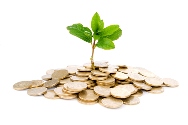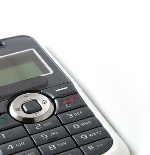|
|



"Money doesn't buy you happiness" must be one of the most repeated and least believed epitaphs in the Western world, and, " It does if you know how to spend it" must be the one of the most common comebacks to it. Seems the comeback merchants may have a point, but it may not be the one they're trying to make. There is (some) scientific evidence and (a lot of) anecdotal evidence that it's not what we buy, but what we do, that makes us happy. Everything we buy costs money. It also uses the planet's resources and often leaves us feeling the exact same way we did before we bought it, but poorer. A lot of what we do also costs money. Travel, hobbies, education, great nights out with friends; and at the end of it we may have nothing to show for it. Nothing but memories, experiences, new knowledge, wisdom, love, laughter, better physical and mental health... Hmm. By nothing then, we mean nothing tangible, which, almost by definition, means nothing you can buy in a store. Why does buying the latest hyped-up, over-marketed gadget seem like a legitimate way to spend money, yet a cool weekend trip away with the girls/guys/family seems like a bit of an indulgence? Maybe because one involves the socially acceptable process of consuming, and one the somewhat decadent process of spending money and having no product to take home. I can't count how many times people have told me I'm "lucky" to have enough money to travel as much as I do, because they can't afford to. These are people wearing an outfit that would cost way more than a weekend road trip. If we add in the top-of-the-range phone and iPod, designer watch and bag, and store-bought latte they're carrying, you're probably talking about the cost of an international flight. Don't get me wrong. I'm not one of those people who thinks we should all be making our own soap and fashioning underwear out of dryer lint. By all means, spend some of your money on 'things', but I do think that the Western world has, in just a couple of generations, become obsessed with having the very best and newest (you know who you are, you early adopters) products, and have somehow come to look at great experiences as being something we "can't afford". I say in a couple of generations, because I'm assuming that our recent ancestors didn't spend 2 world wars, with the depression thrown in between them, obsessing about brand names and how many features their latest gadget had. One of the simplest ways to help save the environment is to buy less stuff, but the economy needs stimulating. To stimulate the economy we need to shop, right? Not quite. Technically, to stimulate the economy we need to spend, not shop. I just found a great iphone online for $199. Here are some of the things I could do for $199 or less this weekend: Take a camping trip to my local state park, all expenses covered, including gear rental, if I didn't have any; go tree top trekking and ziplining at my local aerial park (never done it - sounds cool); sign up for an online photography course (been meaning to for ages). Two of these things would also involve putting money into my local economy. When it comes down to it, people, the environment and the (local) economy could all benefit if we just bought less stuff, and did more things. If you're lucky enough to have a spare $199 this month, think carefully about how you'll spend it. |
TM |
Copia Magazine Home --- Contact Us --- Privacy Policy --- Copyright |